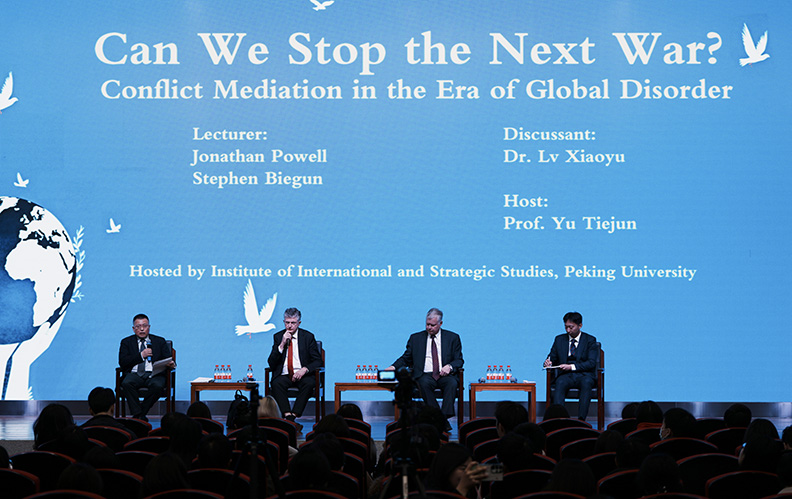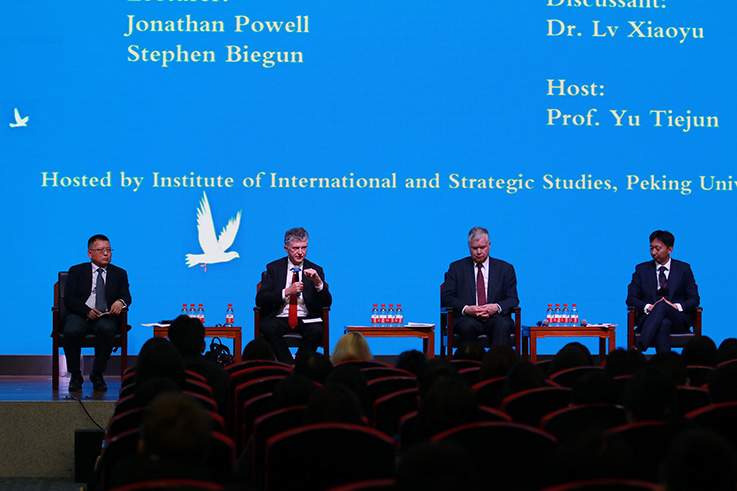
On March 21, 2024, the Institute of International Strategic Studies (IISS), Peking University (PKU) held a lecture titled "Can We Stop the Next War? Conflict Mediation in the Era of Global Disorder" at the Qiulin Lecture Hall of the School of International Studies (SIS), PKU. Jonathan Powell, President and Founder of Inter Mediate, a British conflict mediation organization, and former Chief of Staff to the British Prime Minister, along with Stephen Biegun, Senior Vice President for Global Public Policy at the Boeing Company and former Deputy Secretary of State of the United States, were invited to attend the lecture. They delivered speeches based on their negotiation and mediation experience and the applicability of their approaches to current regional conflicts. The event was hosted by Prof. Yu Tiejun, President of IISS, PKU and professor at SIS, PKU and Assistant Professor Lv Xiaoyu at SIS, PKU provided commentary.
Mr. Jonathan Powell shared his experiences and lessons from conflict mediation efforts in Northern Ireland, Colombia, and Afghanistan. He opined that lasting peace solutions must be sought for the Israeli-Palestinian and Russian-Ukrainian conflicts, not just temporary ceasefires. He also mentioned China's successful role in normalizing relations between Iran and Saudi Arabia, highlighting China's increasing responsibility as a major power in international mediation efforts. Mr. Stephen Biegun shared his negotiation experiences as the U.S. Special Representative for North Korea Policy from 2018 to 2021. He noted that consultations between China and the United States had successfully eased the highly tense situation on the Korean Peninsula in 2017, and advocated for continued cooperation between the two countries to resolve current regional conflicts. In the discussion that followed, Prof. Lv Xiaoyu offered several insights: the urgency in international conflict mediation is to find contemporary solutions rather than relying on the legacies of the Cold War; with the rise of social media, public sentiment is becoming an important factor in influencing the outcome of international conflict mediation; how to envision the future of world politics and proposing sustainable solutions to conflicts represent the real challenge we face.

During the Q&A session, Mr. Stephen Biegun and Mr. Jonathan Powell discussed and exchanged views with the faculty and students present at the lecture on issues such as the responsibility of major powers in international conflict mediation, the role of the United States in recent hotspot conflict mediations, and the impact of U.S. public opinion on policies towards Gaza. The audience reflected that they gained significant insights from the lecture.
Editor: Li Fangqi Photography: Zheng Peijie, Dong Yan

